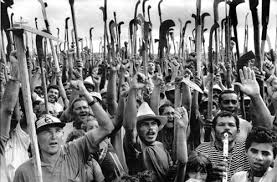Colombia Sees More Violence, Poverty, Impunity, & Foreign Investment; Coke Boycott Grows
A few of the most salient updates from the latest dispatch of [Colombia this Week, ABColombia Group, Jan 9, 2006]:
A new report by the Anti Personnel Mines Observatory of the Presidency of the Republic states that 866 people were injured by mines in Colombia during 2005, of which 230 died. The report also suggested that 50 children were affected during the year and that between three and four people fall victims to the mines every day in the country. Antioquia remained the region with the highest number of victims, El Colombiano reports.
The University of Michigan stops purchases of Coca Cola following concerns about the company’s labour practices in Colombia. Activists accused the company of hiring right-wing death squads to intimidate union workers, which the firm denies. The University of Michigan is the second institution after New York University to implement the ban. Although university contracts represent a small portion of the company’s profits, the damage to its marketing image could be considerable, Reuters reports.
Colombian authorities are concerned about the oil spills following the FARC attack in the department of Putumayo. It is estimated that 10,500 gallons of oil reached the Guamez River and there are fears that the oil slick could end up in the Putumayo River which forms the border with Ecuador. This would further strain relationships with the neighbouring country, which claims the glyphosate fumigations against coca crops in southern Colombia are affecting its ecosystem, El Tiempo reports.
Gold mining investments are returning to Colombia, after several companies withdrew from the country in the 1990s because of kidnappings. A rising gold price and attractive tax regimes introduced by President Uribe are responsible for the come-back. According to ECLAC, the UN Economic Commission for Latin America and the Caribbean, direct foreign investment in Colombia grew 34.7% in 2004 to $2.4 billion. The mining sector contribution to GDP grew 7% between 2003 and 2004 while the country’s economy only grew 3.5%, The Globe and Mail reports.
The UN Human Rights Office in Colombia criticises the decree that regulates the Justice and Peace Law, recently approved by the government, arguing that it does not guarantee the rights of the victims to truth, justice and reparation and does not provide a legal framework for the dismantling of illegal armed groups, The Miami Herald reports.
Members of the paramilitary group Autodefensas de los Llanos kill three peasants in Vista Hermosa, in Meta department, despite the presence of the army in the area. Three more peasants have recently been disappeared in Vista Hermosa, following the FARC attack in the area, and President Uribe’s statements that measures against the rebels would be strengthened, the Colombian organisation Justicia y Paz reports.
According to official statistics, inflation in 2005 was higher for lower social strata than for the middle and upper classes. The reasons behind this are higher prices for food, housing, health and public transport, categories that mostly affect the poor. Half of the Colombian population- 22 million people- live in poverty, El Tiempo reports.



0 Comments:
Post a Comment
<< Home